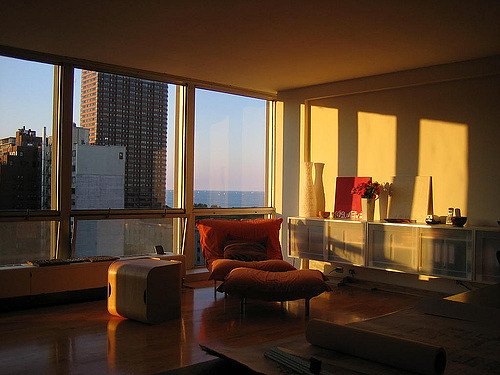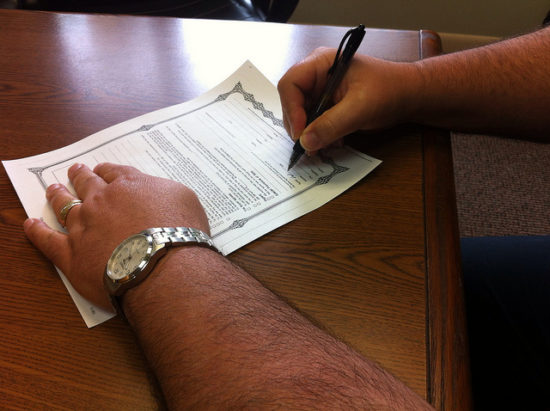
What You Need to Know About Buying a House
As soon as I stepped into my house I knew that it was the one I wanted to buy. It’s an older home, built in 1979, but had been newly renovated by the owner. The entire kitchen was redone, new carpet installed, new roof, new appliances, newly painted – you get the deal. I was so excited about the idea of owning my own home and the freedom that comes with it, that I didn’t stop to think about the little things.

Before You Buy
Before you even put an offer down on your dream home, you will need to know what you can afford and have an inspection. You will pay for this inspection in most cases and it’s usually non-refundable. You may be offered multiple inspection choices, but no matter what the inspector says, always choose the highest level of inspection possible. Especially if you are purchasing a home that is almost 40 years old like mine, you need to know that every single nook and cranny is up to par. This should have been a no-brainer for me, but of course it wasn’t. As a result, I was forced to pay for some costly repairs myself just a year into owning my home when the motor in my air conditioning unit completely died in 100 degree weather.
You may also want to take some time and get to know your homeowners association (if you have one) and your surrounding neighbors. While a nasty neighbor might not dissuade you from purchasing your dream home, a difficult HOA just might. I purposefully went with an older home outside of a subdivision or community just for this reason.
Don’t get me wrong, many HOAs are wonderful and uphold all the aspects of a friendly, clean, and desirable neighborhood. Yet, that might not be what every homeowner, especially a new one, is looking for. There will be a fee, usually yearly, associated with maintaining the HOA. In addition, you’ll need to make sure you have enough free time to keep your lawn and trees in pristine condition or have it in the budget to hire a gardener. They may also have rules and regulations about things like pools, RVs, and how long your garbage cans may stay on the corner. Read up on all of these things before you take the dive because if you neglect to inform yourself you could be slapped with a hefty fine that increases every day you are outside of regulation.
Closing on Your First Home

Another perk of rural living has to do with developmental areas. Of course, this won’t apply to all states, but where I live some cities do not require any money down. The state encourages growth in smaller cities surrounding major ones. So, they want these houses to be snatched up as quickly as possible. Thus, you may be able to take advantage of zero to very little money down.
Although, even if this is the case, I suggest putting money down on any home – even if it is just a couple thousand dollars. This will lower your monthly payment and make it easier on your wallet in the long run. If you’re wondering, “how the heck will I have the money for that?” just as I was, I would suggest starting to save money right now if you aren’t already. A great starting goal for a down payment would be 10% of each paycheck that you receive. If you can do more, that’s great! You’re well on your way to owning a home. If you find that 10% is too much for your budget, just do whatever you can, but know that it might be best to wait for a while before you take the plunge.
What’s more, you may be required to pay the costs of closing on your home. Usually this comes out to a few thousand dollars in various fees. You may need to plan on covering that cost that in addition to your down payment. It is common and customary for many sellers to cover the costs of selling their home, but this isn’t 100% assured. So, it’s always smart to plan on having to pay these fees. If you don’t have to, then you just have more money to save for a rainy day or on any improvements you want to make on the home.
Lastly, speak with your realtor about first time home owner grants. Again, this may differ depending on where you live, but my state was able to grant me 1,000 dollars down on the purchase of my first home. Needless to say, it’s just silly not to take free money.
Unexpected Costs When Purchasing a Home
You should know that some areas on your property will not be covered under your required home insurance. Should something go wrong, you’ll need to know who to call. Every home insurance policy is different. You’re going to be looking at a deductible and insurance cost inflation if you have to use your coverage, but in many cases it’s still going to be cheaper than having to pay the lump sum out of pocket. Just take a day or two to do some comparisons before you decide.
For example, recently a pipe burst in my front yard; my home is old and still has many copper pipes which are just not reliable anymore. The pipe that burst was near the main water valve, close to the street on my property. Naturally, my home runs on city water, so I gave them a call to see what the damage was. The city may fix issues like this for you, but in this instance, the burst pipe was lying a few feet under the ground, which is not in their jurisdiction. Ergo, I had to pay the money out of pocket. Some home insurance will cover problems like these, and some may not. This is the type of thing you don’t want to catch you off guard and why it is so important to have a constant cushion of savings when you decide to purchase your home.
A Home is a Long Term Investment
Now that I have fully scared you to death about the costs associated with owning a home, let’s talk about the benefits. Not only will a house often times be the same price or less as an apartment, (unless you live in a very densely populated city) you’ll be making payments on something that you own. This gives you the freedom to style and remodel your home however you see fit, as if you didn’t already know.
On your first home, it’s common to receive a tax break when you first buy it. You’ll now be filing the costs associated with your home every single year because you pay heaps of property tax on it each month. Therefore, you could possibly see a bonus on your taxes from here on out just because you own a home. I was able to file as a brand new homeowner within the first year of owning my home, but didn’t see as much return as some others do. This is most likely due to where I live, the length of time I owned by home before I filed my first homeowner taxes, and the low cost of my home overall.
You can also get tax breaks for any improvements you choose to make to your home. Not every improvement will apply, but especially things like energy efficiency upgrades can put a few dollars back into your pocket each year.
Finally, the longer that you own your home it’s feasible that your property value will increase. One of the biggest bonuses about choosing to purchase my home in a developing area near a larger city is the fact that my town is rapidly growing. As the demand for homes in my area grows, so does the value of my house. In the last two years alone I have seen my property value skyrocket 20,000 dollars higher than when I purchased it. This isn’t to say that this estimate won’t ever level off or even go back down, but in a healthy market you should see your property value increase little by little over time.
Just because you’re young doesn’t mean you can’t purchase a home. Buying my house was one of the single most liberating experiences I’ve had the pleasure of encountering. I’m still as in love with my home as much or more than the day I moved in. The longer you choose to remain in an engagement with you home, the more it will pay off for you in the end. Remember, the best defense is a good offense. Which means, if you want to buy your house young, start preparing now.
Photos: Nicci Romanovsky, Timothy Brown and Dan Moyle
Comments